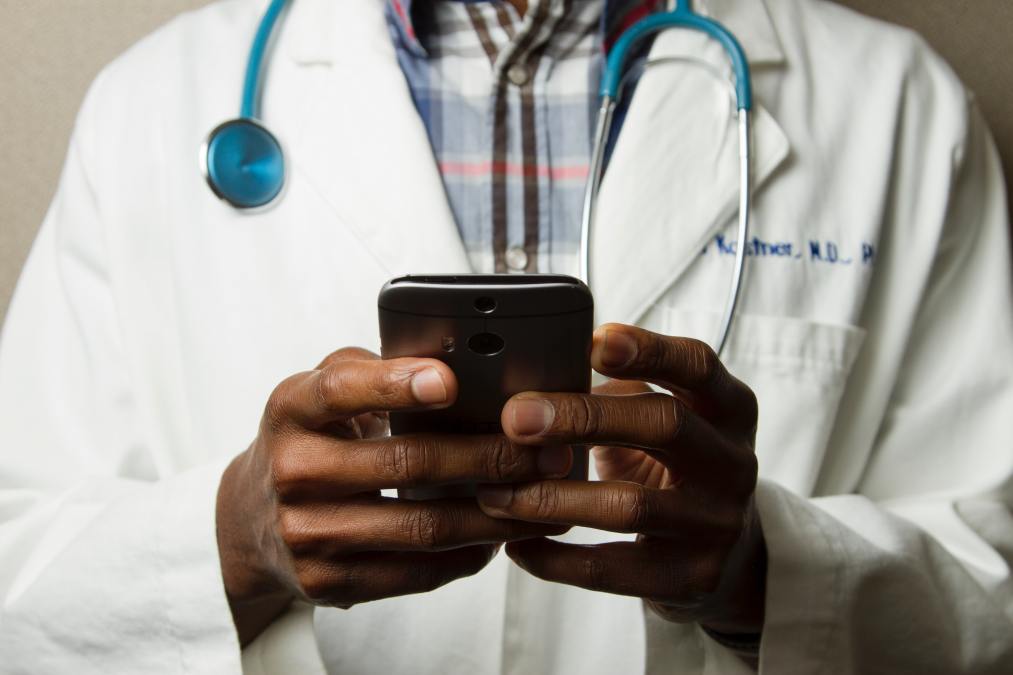Digital medical licenses could help doctors practice across state lines

A software company that specializes in digitizing professional licenses said this week that it is offering state governments free access to its platform following a federal order allowing doctors and other health professionals to practice across state lines as the spread of the novel coronavirus worsens.
Merit, which helps organizations verify and manage qualifications of professionals across numerous fields, said it can connect states’ medical-license databases with each other so physicians can take advantage of a March 16 decision by the U.S. Department of Health and Human Services to waive the requirement that doctors and other credentialed medial workers need to be licensed by each state in which they practice. Still, even with the waiver, licenses will still need to be verified before physicians can get to work in other states other than where they practice.
“We’ve been around doing the same thing [in other fields] with states,” Merit’s chief executive, Tomer Kagan, said in an interview.
Kagan’s company counts among its clients the Commonwealth of Virginia, which uses Merit to track the qualifications of individuals in fields including real estate, building trades and cosmetics.
But Kagan said the product that Merit is offering to states, called ReadyNow, is getting an accelerated launch to help states instantly confirm doctors’ licenses across state lines as COVID-19 spreads.
“We’ve spent the last year building tons of ways to ingest data,” he said. “We feel comfortable taking any single state’s data into our system. What it does it puts it in a central repository so you can get a standard form.”
Former Kansas Gov. Jeff Colyer, who is also a surgeon, told StateScoop that the ongoing health crisis will put a crush on state governments to recruit more doctors as the coronavirus jumps from region to region and put them to work as quickly as possible.
“Normally, you will apply for a license in a new state you have to go through all sorts of background checks,” Colyer said. “But you have to meet the standards of that state, and that normally takes a few weeks. Then the hospital needs to verify your license and some other things. Being able to go on the internet and verifying the documents is a game-changer.”
Colyer, who was governor from January 2018 to January 2019, said states are scrambling for both personnel and supplies. And even though many coronavirus-stricken areas have asked their residents to forgo non-emergency in-person appointments and elective surgeries, there are still other routine emergencies that will need to be tended to, he said, raising the need to quickly scale up the medical workforce.
“You still have the basic medical problems that you had before,” he said. “Personnel are moving around quite a bit, and we’re trying to mobilize people. States are being creative. We’re saying we’ll accept another states credential, but we need to speed that up.”
Merit’s software, he continued, “is a way to short-circuit that.”
Colyer, who specialized in reconstructive surgery during his practicing career, said he’s currently on call at three hospitals around Kansas City for the next few weeks, and that the current emergency in the United States reminds him of his volunteer missions with the International Medical Corps in countries like Kosovo and Sierra Leone.
“I’ve worked in about 25 different war zones,” he said. “It breaks my heart to be doing it here.”
Colyer also said the coronavirus outbreak is one of the most critical times for the United States “since the Civil War,” and that governors are pursuing many different routes. His successor, Laura Kelly, has closed schools for the remainder of the academic year and has banned public gatherings larger than 10 people, but has left decisions to issue shelter-in-place orders to individual counties, several of which in the Kansas City area — accounting for nearly 1 million of the state’s 2.9 million residents — have done so. To date, Kansas has confirmed 98 cases of COVID-19, with two fatalities.
“Whether we end up looking more like South Korea or more like Italy, we’re probably 10 days out,” he said. “I’m optimistic.”


